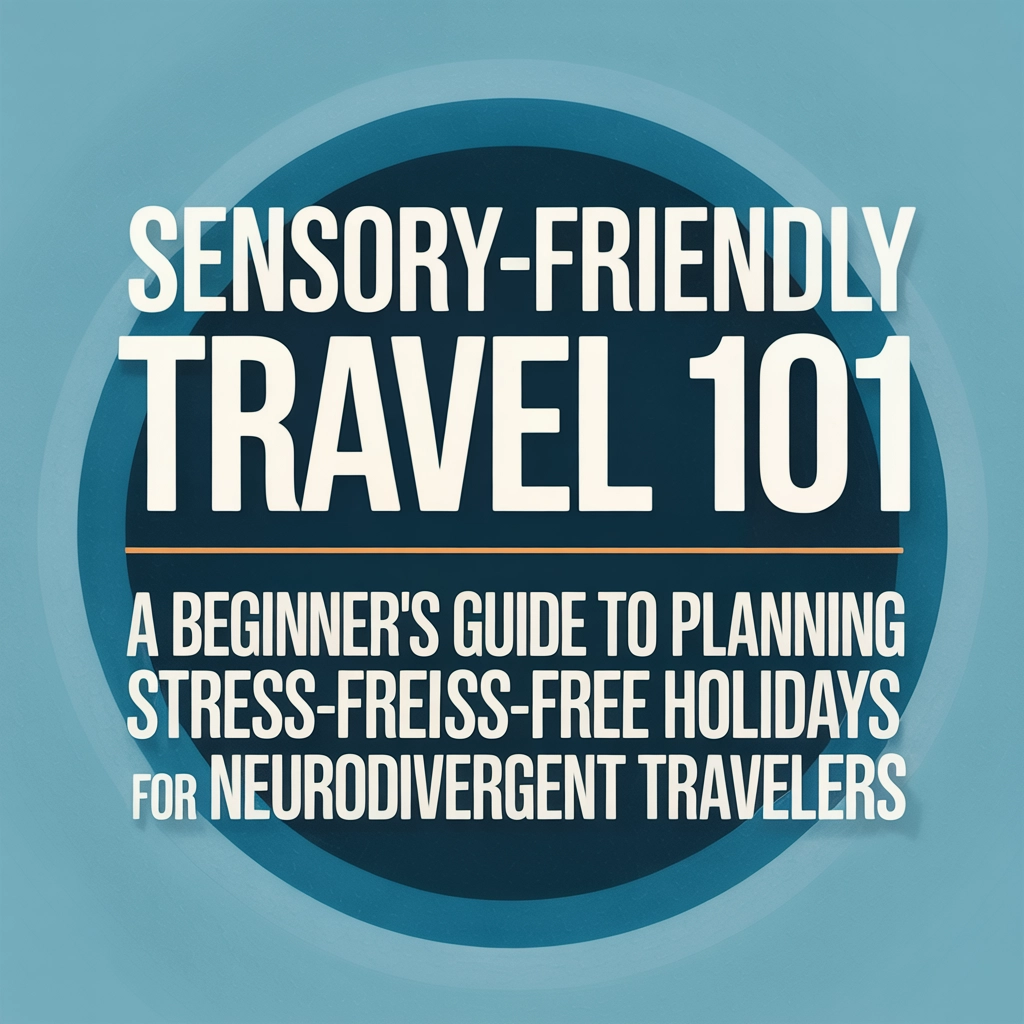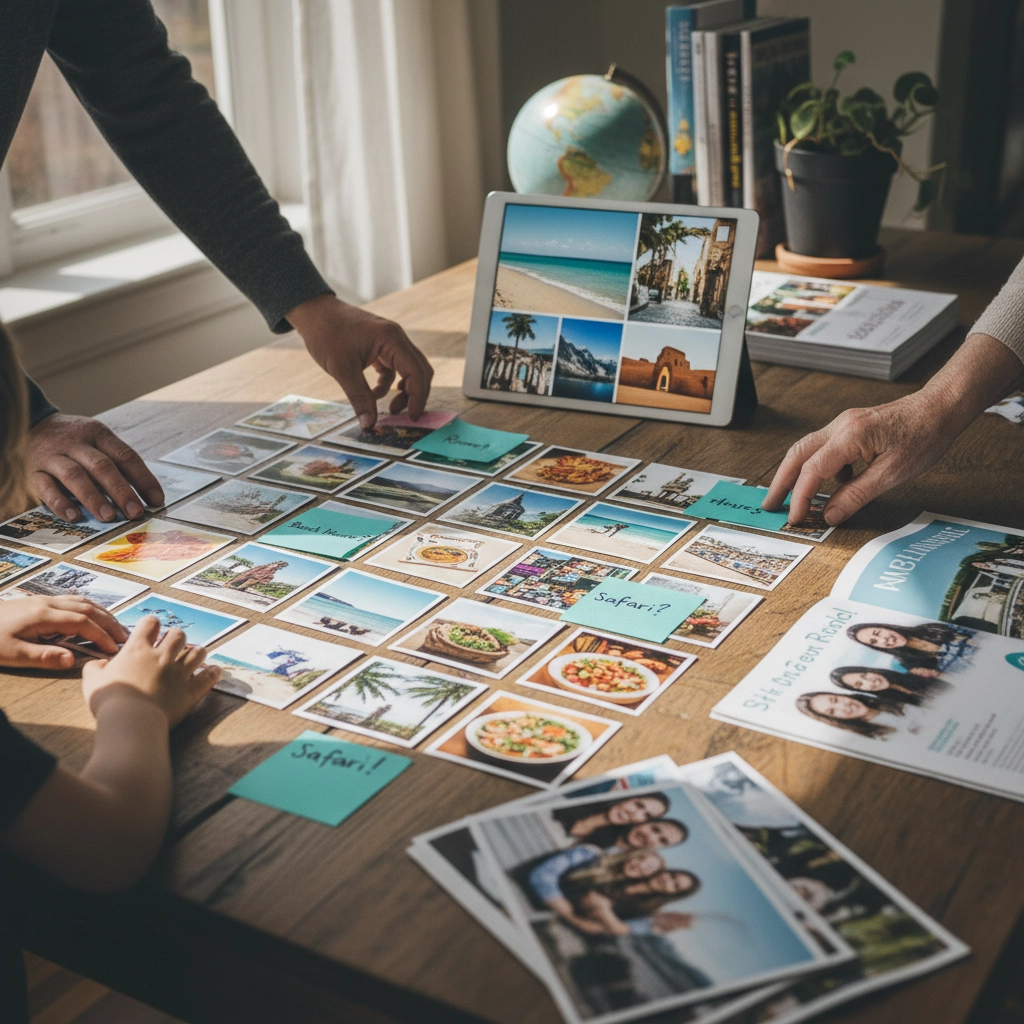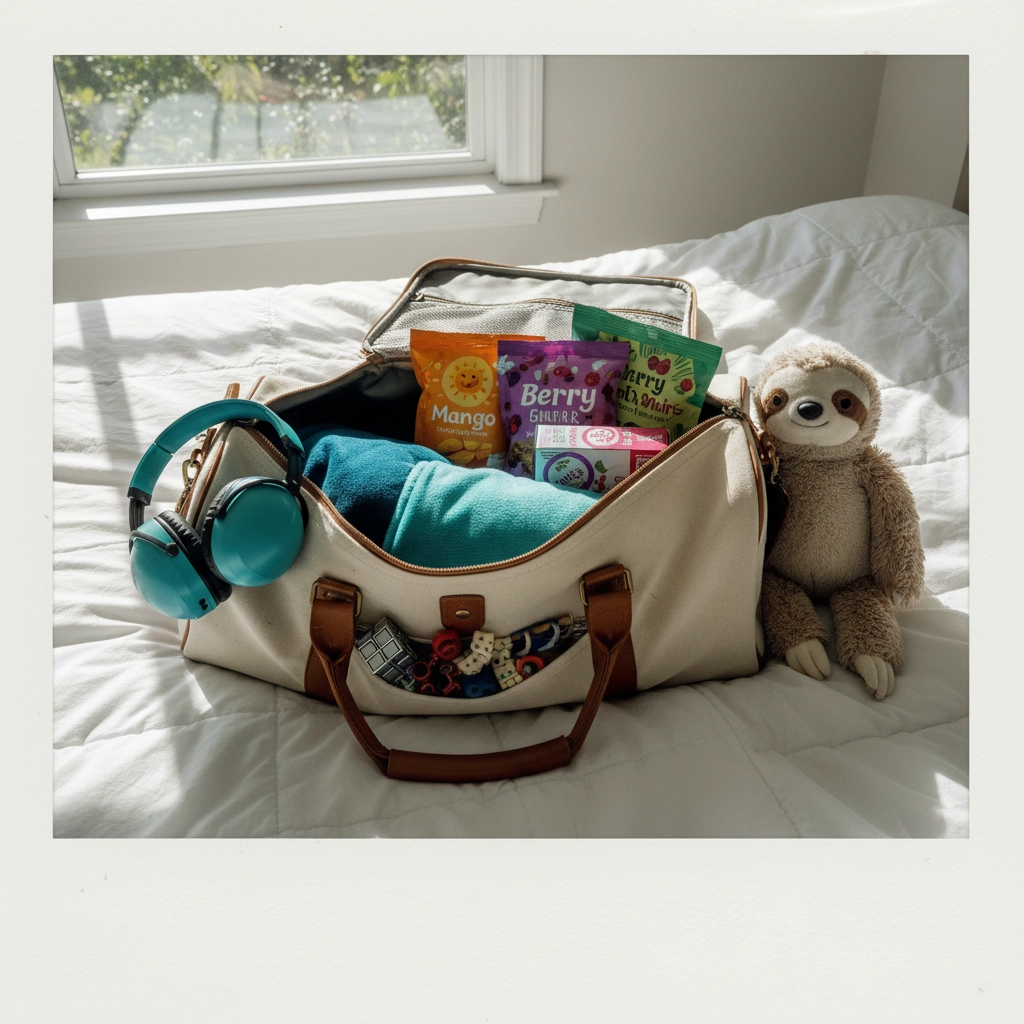Sensory-Friendly Travel 101: A Beginner's Guide to Planning Stress-Free Holidays for Neurodivergent Travelers

Planning a holiday should be exciting, not overwhelming. If you're new to sensory-friendly travel, you might be wondering where to start or feeling uncertain about how to make travel work for you or your loved one. The good news? With the right approach and preparation, travel can be wonderfully accessible and enjoyable for neurodivergent individuals.
Let's walk through everything you need to know to plan your first stress-free, sensory-friendly holiday.
Understanding What Sensory-Friendly Travel Really Means
Sensory-friendly travel is about creating experiences that work with your sensory needs, not against them. It's designed for anyone who experiences the world differently – whether that's someone with autism, ADHD, sensory processing differences, anxiety, or other conditions that affect how we process our environment.
Here's something important to remember: wanting comfort and accommodations doesn't make you "high maintenance." Everyone deserves to travel in a way that feels good to them. Building a travel experience that honours your nervous system is not only perfectly acceptable – it often makes the trip more enjoyable for everyone involved.
Sensory-friendly travel focuses on minimising overwhelming stimuli and creating calming environments. This might mean finding quiet spaces, using visual aids, or simply having backup plans when things feel too much. Most of all, be kind – everyone is different, and what works for one person might not work for another.
Starting with Thorough Preparation (It Really Does Make All the Difference)
Research is Your Best Friend
Unlike spontaneous weekend getaways, sensory-friendly travel benefits enormously from advance planning. This isn't about being rigid – it's about creating a foundation of predictability that allows for flexibility when you need it.
Start by researching your destination thoroughly. Look into the environment, typical crowd levels, and what autism-friendly or sensory-conscious accommodations might be available. Many places now offer specific information for neurodivergent visitors, so don't hesitate to ask directly when you're planning.
You might want to check out photos of your destination online beforehand. This can help reduce anxiety about unfamiliar environments and give you a better sense of what to expect. If this may interest you, some destinations even offer virtual tours!
Creating Visual Preparation Tools
Visual itineraries and social stories can be incredibly helpful, especially for those who process information better visually or find unexpected changes challenging. Consider creating a simple visual schedule that shows the trip itinerary – this helps manage expectations and can significantly reduce travel anxiety.
These tools work particularly well for explaining what will happen during travel days, from check-in procedures to security at airports. Speaking of airports, you might find our guide on improving your airport experience helpful for additional preparation tips.

Choosing the Right Destination and Timing
Picking Places That Welcome You
When selecting your destination, look for places that actively cater to neurodivergent visitors. Many resorts, theme parks, and hotels now offer sensory-friendly accommodations and services. Some destinations have designated quiet spaces, sensory rooms, or trained staff who understand different needs.
Consider the timing of your visit too. Travelling during off-peak times can make an enormous difference in managing sensory overload. Fewer crowds, shorter queues, and generally calmer environments can transform your travel experience.
Parks and natural environments often provide wonderful restorative spaces that work well for sensory breaks. Why not look into destinations that offer access to nature alongside other activities?
Working with Specialists
Some travel agencies and tour guides now specialise in autism-friendly and sensory-conscious travel. They can provide valuable expertise in destination selection and help you navigate specific requirements. Get in touch with us if you'd like to explore these options – we'd love to help you find the perfect match for your needs.
Preparing Your Accommodations
Calling Ahead Makes a Real Difference
Don't hesitate to call your accommodation directly to discuss your specific needs. Many hotels and vacation rentals are more than happy to help once they understand what would make your stay more comfortable.
You might request rooms away from elevators, high-traffic areas, or busy streets. Some accommodations can provide additional pillows, blackout curtains, or even white noise machines. It may be reassuring to know that requesting these adjustments is becoming increasingly common and welcomed.
Making Spaces Feel Familiar
Consider what familiar items might help make your accommodation feel more comfortable. This could be as simple as bringing your own pillow or blanket, or packing some favourite snacks that provide both comfort and familiarity in a new environment.
Building Your Essential Sensory Toolkit
Comfort Items That Travel Well
Your sensory toolkit is personal to you, but here are some items that many travelers find helpful:
- Noise-cancelling headphones for managing overwhelming sounds
- Familiar snacks that you know you'll enjoy
- Comfort items like a favourite blanket, toy, or stress ball
- Sensory tools specific to your needs – perhaps fidget items or weighted lap pads
Remember, there's no such thing as being "too old" for comfort items. If something helps you feel settled and regulated, it deserves a place in your luggage.
Practical Items for Different Situations
Consider packing items that might help in various scenarios: sunglasses for bright environments, earplugs for noisy spaces, or even a small cushion for uncomfortable seating. Being prepared doesn't mean expecting problems – it means giving yourself options.

Managing Time and Energy Wisely
The Magic of Buffer Time
One of the most valuable gifts you can give yourself is time. Build buffer periods throughout your travel plans – sometimes a few hours, sometimes an entire day dedicated to quiet time and staying in.
This isn't about being "slow" or "difficult." Travel can be genuinely exhausting for neurodivergent individuals because of the constant processing of new sensory information and environments. Planning recovery time is simply good sense.
Recognising Your Energy Patterns
Pay attention to when you typically feel most energetic and when you need quieter activities. If mornings are your best time, plan more demanding activities then and leave afternoons for gentler pursuits. Everyone is different, so trust what you know about yourself.
If an outing results in sensory overload – even if it was enjoyable – plan some recovery time afterward to regulate and recharge. This prevents burnout and helps maintain enjoyment throughout your trip.
Practical Travel Day Strategies
Airport and Transportation Preparation
Airports can be particularly challenging due to crowds, noise, and unfamiliar procedures. Prepare specifically for security processes and consider arriving with extra time to move at your own pace.
You might want to look into the Hidden Disabilities Sunflower scheme, which allows you to voluntarily indicate that you have a disability that may not be immediately apparent and that you might need assistance, understanding, or more time in public spaces. Many airports and transportation services now recognise this symbol.
Our airport accessibility guide provides additional detailed information that may be helpful for your preparation.
Communication Strategies
If you're travelling with others, develop clear communication strategies. Ensure everyone understands the importance of sensory considerations and knows the plan for managing potential challenges.
This might include establishing signals for when someone needs a break, identifying quiet spaces in advance, or having a simple phrase that indicates when it's time to step away from a situation. Being supportive can help everyone feel more confident and relaxed.

When Things Don't Go to Plan (And That's Okay Too)
Flexibility Within Structure
While planning is crucial, it's equally important to remain flexible. Sometimes the most carefully planned trips encounter unexpected challenges – flight delays, weather changes, or simply realising that something isn't working as expected.
Having backup plans and knowing it's perfectly acceptable to change course can actually reduce anxiety. Maybe that busy museum isn't feeling right today – is there a quieter park nearby instead?
Self-Advocacy and Support
Don't hesitate to ask for help when you need it. Most people are understanding and want to assist when they understand the situation. This is perfectly normal, and advocating for your needs is a strength, not a weakness.
Remember that taking breaks, leaving situations that feel overwhelming, or modifying plans isn't failing – it's taking good care of yourself.
Moving Forward with Confidence
Planning sensory-friendly travel does require more preparation than typical trips, but this investment creates the foundation for truly wonderful and accessible travel experiences. By thoughtfully considering your sensory needs, choosing appropriate destinations, and building in flexibility, you can explore the world while maintaining your comfort and well-being.
Every traveller's needs are different, and what works perfectly for one person might need adjustment for another. The key is starting with understanding, preparation, and kindness toward yourself throughout the process.
We hope this guide has been helpful and encouraging. If you're ready to start planning your sensory-friendly adventure, or if you have questions about making travel work for your specific needs, please don't hesitate to get in touch with us. We'd love to help you create a travel experience that feels just right for you.
We look forward to hearing from you soon and helping make your travel dreams accessible and enjoyable.
